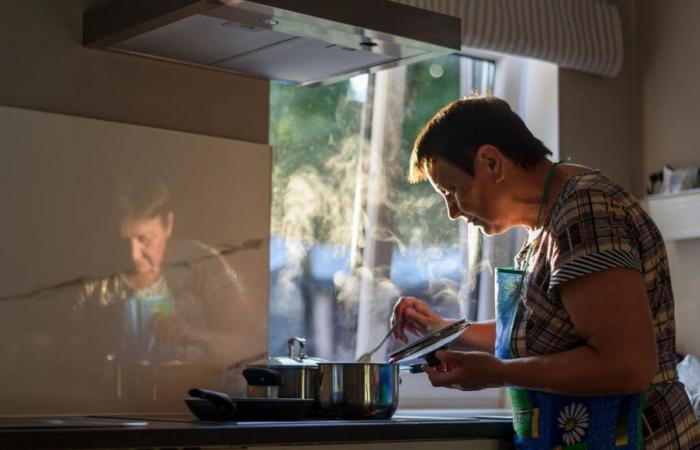
Good news for seniors: they are now more people able to remain independent at homeaccording to a Drees study published this Thursday. Life expectancy without loss of autonomy has also increased. Among the 18 million French people aged 60 or over, 16.7 million live at home.
According to this survey entitled “Home Autonomy” and carried out in 2022 among 22,300 people, the share of seniors aged 60 and over living at home with a loss of autonomy fell from 10% in 2015 to 8% in 2022. In total, the number of seniors affected by loss of autonomy has therefore fallen by 180,000 people in seven years, and this despite the increase in the number of seniors over the period, indicates the Directorate of Research, Studies, Evaluation and Statistics.
This progress is “mostly” due to the decline in loss of autonomy among those aged 75 and over : 15% of them will be affected in 2022, compared to 20% in 2015. In this study, “loss of autonomy” corresponds to the criteria for obtaining a personalized autonomy allowance (APA) to finance aid at home.
Life expectancy without loss of autonomy
Another lesson from this study is that life expectancy without loss of autonomy has increased. From the age of 60, it is 23.1 years for women (up 10 months between 2015 and 2022) and 20.6 years for men (up 6 months).
As for life expectancy in general, it is stable: from the age of 60, it is 27.3 years for women, including 4.2 years on average spent in a situation of loss of autonomy (2.9 years at home and 1.3 years in an institution). For men, it is 23.0 years, including 2.4 years in a situation of loss of autonomy (1.6 year at home and 0.7 year in an establishment).
“Improving the living conditions of seniors and health prevention helps to delay the onset of loss of autonomy”observed Alexis Louvel, research manager at Drees, during a press conference. “The generation of seniors arriving at 75-80 years old has experienced better living conditions than the generation that preceded them. (…) Pensions are higher, as are the standard of living”he explains. And “the health of seniors has been better taken care of, in particular their chronic illnesses and long-term conditions”.





